#mandarin chinese
Text
In light of Duolingo laying off its translators, here are my favourite language apps (primarily for Mandarin Chinese, Japanese, and te reo Māori).
Multiple Languages
Anki is a flashcard programme and app that's not exclusively for languages. While making your own decks is ideal, you can also download shared decks for most languages.
If you're learning Japanese, specifically, Seth Clydesdale has websites for practicing alongside Genki's 2nd or 3rd editions, and he also provides his own shared Anki decks for Genki.
And if you're learning te reo Māori, specifically, here's a guide on how to make your own deck.
TOFU Learn is an app for learning vocabulary that's very similar to Anki. However, it has particularly excellent shared decks for East Asian languages. I've used it extensively for practicing 汉字. Additionally, if you're learning te reo Māori, there's a shared deck of vocabulary from Māori Made Easy!
Mandarin Chinese
Hello Chinese is a fantastic app for people at the HSK 1-4 levels. While there's a paid version, the only thing paying unlocks is access to podcast lessons, which imo are not really necessary. Without paying you still have access to all the gamified lessons which are laid out much like Duolingo's lessons. However, unlike Duolingo, Hello Chinese actually teaches grammar directly, properly teaches 汉字, and includes native audio practice.
Japanese
Renshuu is a website and app for learning and practicing Japanese. The vast majority of its content is available for free. There's also a Discord community where you can practice alongside others.
Kanji Dojo is a free and open source app for learning and practicing the stroke order of kanji. You can learn progressively by JLPT level or by Japanese grades. There's also the option to learn and practice kana stroke order as well.
10K notes
·
View notes
Text
Advice I would give my past self about studying Chinese

Recently I've been reflecting on my Chinese learning journey and how far I've come. If I could go back in time, these are 10 things I would tell my past self. A few are specific to Chinese, but most can apply to any language
It will get so much easier to learn new characters. I remember feeling overwhelmed because learning new characters was a painful process. Now when I encounter a new character, I can remember it with relative ease—it’s just a new combination of familiar components.
Don't feel bad about having uneven development in different skills. My listening and reading are significantly stronger than my speaking and writing. It’s super common and nothing to be ashamed of.
The best way to get over being too embarrassed to speak is to experience some embarrassment and realize it’s not a big deal. I used to be so afraid of making mistakes that I would avoid speaking in class. It was only by being forced to speak that I got over it. I'm much better for it!
It’s impossible to learn everything, and time is limited. You have to prioritize. You probably don’t need to know how to say “pawnshop” in Chinese, and trying to jam your head full of 100 words you saw once won’t work. They won’t stick.
It will actually be harder to read pinyin than to read characters at some point. When I helped a friend with a script for her Chinese class, I really struggled because she had written it entirely in pinyin. I had to write out the characters to read without stumbling! I know characters are daunting for beginners, but trust me, you will get used to them.
If you haven’t practiced or learned something, of course you won’t be good at it. I remember feeling so frustrated trying to navigate Chinese websites for the first time. In retrospect, obviously, I was going to struggle with something completely new to me!
If something isn’t sticking, move on. Why waste time on a word that’s not clicking when you could be learning five new ones? It will only result in unnecessary frustration. So unless you need to know it for your class or a proficiency test, drop it and move on.
Don’t beat yourself up when you have trouble understanding music, literature, different accents, etc. These can be challenging even in your native language. Of course you’re going to struggle more in a new language.
It's worth it to pay attention to things like stroke order and tones from the start so you don't form bad habits. Don’t stress about get it perfect, but it’s easier to do it right the first time than to have to correct your bad habits in the future.
Instead of feeling overwhelmed by all that you don’t know, learn how to express yourself with what you do know. It’s truly its own skill that requires practice. After all, in life you can’t always stop and pull out a dictionary.
I started learning Chinese a really long time ago, but I became more serious about it in 2018, so 5 1/2 years ago. I'm very proud of how far I've come, but I still have a long way to go! I look forward to revisiting this post in another couple of years 😊
#my learning#chinese#mandarin#mandarin chinese#chinese language#studyblr#langblr#learning languages#language learning#chinese langblr#mandarin langblr#languageblr
377 notes
·
View notes
Text
i haven't seen anyone talk about it before, but there's a site called 21st Century Chinese Poetry that has a massive collection of contemporary chinese poetry, including english translations thereof, for anyone who, like me, is interested in poetry but may feel a bit intimidated by the more literary nature of classical poetry. currently, they have poetry from between 2000-2021, and i, personally, have rather enjoyed poking around the site.
#chinese langblr#mandarin langblr#chinese#chinese language#mandarin#mandarin chinese#langblr#language learning#langblr resources#resources#汉语#indigo ink
724 notes
·
View notes
Text
WORDS FOR CAT BRACKET.
THE FINAL SHOWDOWN.

brought to you by: chloe, my sweet evil old baby girl
miu (ancient egyptian) vs 小猫 (mandarin chinese)
FOR THE LAST TIME, I ASK YOU:
info and propawganda under the cut!
miu - no IPA provided
It’s one of the first words for cat ever to exist and also is onomatopoeic and is so cute <3
小猫 (xiǎo māo) /ɕjau̯˩ mɑu̯˥/
it rhymes and means little meow. what is a kitten if not a little meow
Perfect way to describe a cat. It rhymes and it sounds really cute. Also cmon look at a cat. That IS a xiao mao mao
you cannot tell me they are not the perfect word for a kitty cat. they came up to us and introduced themselves, so we decided to call them by the name they call themselves, and in mandarin, we call them ""little māo"" because they are our little meow meows!! they are our babies!! also chinese is Ancient. our writing system goes back like 4000 years!! and we are still using it! i admit we probably weren't calling them 貓 for all these 4000 years but respect your elders! /lh
157 notes
·
View notes
Text
今天的成语 An Idiom I Learned Today
recently learned about a new idiom and thought i would share! not sure if it counts as a 成语 per se, since it is 8 characters instead of 4. nonetheless here it is.
三天打鱼,两天晒网
sān tiān dǎ yú, liǎng tiān shài wǎng
literally: fish for 3 days, sun-dry the net for 2 days
figuratively: to lack perseverance; to not earnestly work toward something
example:
你要是三天打鱼两天晒网,那你永远不会进步。
If you "fish for 3 days but sun-dry the next for 2," then you won't ever improve.
it's the idea that if you work towards something for 3 days but then rest for 2, you're basically wasting your time and not putting in as much effort as you could—since you could be putting that effort in all 5 days.
it's definitely a very chinese concept 😅 i'm pro resting myself LOL
#chinese langblr#mandarin langblr#chinese learning#chinese#langblr#mandarin chinese#language learning#mandarin#learning languages#成语#chengyu#idioms#vocab#zhuzhu rambles
135 notes
·
View notes
Text
The 然's
突然,虽然,忽然. and the other 然's can often get mixed up, so here's a quick explanation of some of the most common ones!
突然 (Túrán): This means suddenly or unexpectedly
居然 (Jūrán): This kind of means suddenly, but more in the sense of "surprisingly" or to suggest disbelief at something that happened.
忽然 (Hūrán): This also means suddenly or unexpectedly, but it has a more stronger connotation.
既然 (Jìrán): This is a conjunction meaning "since" or "now that"
既然the weather is great, let's go out!
既然 you aren't busy, let's go watch a movie.
不然 (Bùrán): This means "otherwise" or "or else";
You should study, 不然 you won't do well on the exam.
虽然 (Suīrán): This means although or even though.
虽然 I'm not good at singing, I still like to go to the karaoke.
当然 (Dāngrán): 当然 means certainly or definitely and can be used as a reply:
Can you help me with A? 当然!
自然 (Zìrán): This can mean nature or naturally.
China's 自然 is very beautiful.
She speaks Chinese 得很自然.
仍然 (Réngrán): This can mean "still" or "yet".
I仍然 haven't read that book.
依然 (Yīrán): Similar to 仍然, this also means still" or "yet" but it's usually used in more formal and literary works, whereas 仍然 is more often used in spoken language.
果然 (Guǒrán): 果然 can be used to mean "indeed" or "as expected"
This movie is 果然 interesting.
竟然 (Jìngrán): This is an adverb used to suggest surprise or something unexpected.
He竟然forgot her birthday.
显然 (Xiǎnrán): This means "clearly" or "obviously".
This soup 显然 hot.
偶然 (Ǒurán): This means "accidentally" or "by chance".
We 偶然 met at the same cafe.
How many other 然's do you know about? Drop a comment!
#slavic roots western mind#student life#student#study blog#college#college life#travel blog#aesthetic#studyblr#study motivation#chinese#china#study in china#life in china#learn chinese#chinese grammar#grammar#vocabulary#chinese vocabulary#chinese verbs#verbs#verb#chinese studyblr#mandarin langblr#mandarin#mandarin chinese#chinese language#language learning#chinese langblr#language resources
73 notes
·
View notes
Text

GUYS THIS HAS BEEN THE BEST WEEK OF MY LIFE I SWEAR. I THOUGHT THEY WOULDNT LET ME KNOW FOR A WHIIILE OMGOMG IM GOING TO TAIWAN
#studyblr#study blog#langblr#langblog#language learning#languageblr#chinese langblr#mandarin langblr#study abroad#taiwan#chinese language#mandarin chinese#mandarin studyblr#studyblr community#chinese studyblr#learning chinese#learn chinese#mandarin study#learn mandarin#studyabroad#exchange student#student life#uniblr#university#college
97 notes
·
View notes
Text
Starting something new for april :D
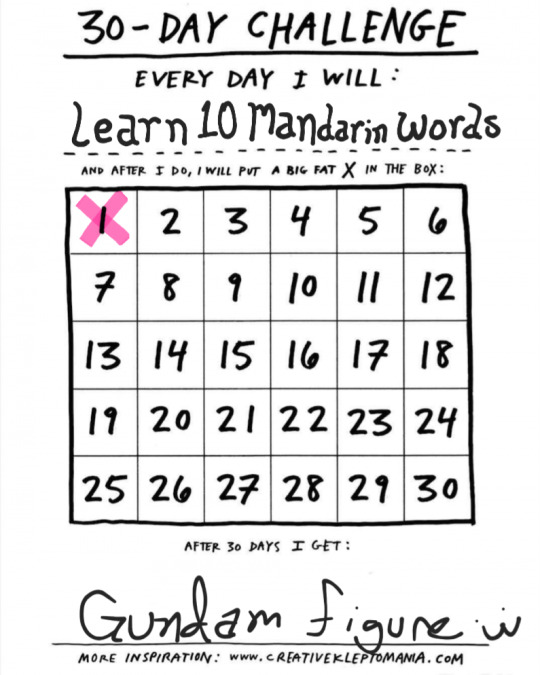
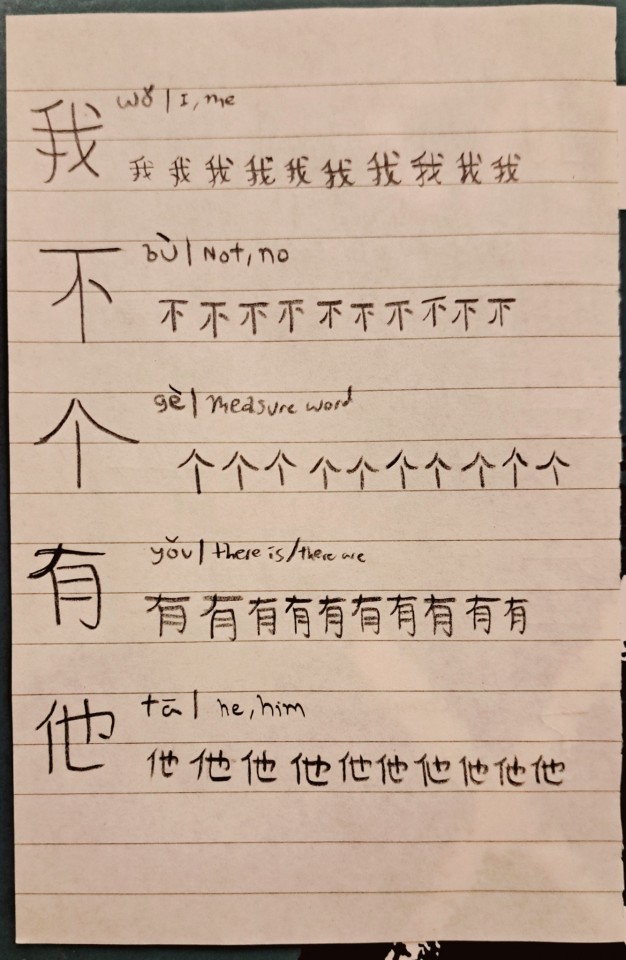

I wanted to start learning mandarin chinese- its a language that has seemed really interesting to me and I've wanted to get into learning it for a while. Though I've an awful time actually sticking to stuff I start so made a little daily challenge thing to try and keep me from trailing off lol-
I did use to have a language learning blog but tbh now I prefer to keep things on mostly the same blog lmao sorry fandom followers for the langblr post on your dash
48 notes
·
View notes
Text
Reading Chinese Ebooks on 讀墨 ReadMoo
For the past few years, I've labored under the assumption that I can't read Chinese ebooks because I just can't focus on them. However, I recently saw someone on insta mention the app 讀墨. I was intrigued, and decided to give it a try. And wow, what a shock, I can in fact read Chinese ebooks! I just have to change it to vertical text and make the font very large.
So the past couple weeks I've been trying to read more consistently using 讀墨. The book I started with was slow going at first, which almost made me give up; it was the Chinese translation of The Last Cuentista by Donna Barba Higuera. This book really wasn't for me, and I didn't want to keep reading it. So instead of just giving up, I bought one more book and tried again: 《你的孩子不是你的孩子》 by 吳曉樂 (yes, it is the basis for the Netflix show of the same name).
I devoured the book in under a week. So yeah, I think Chinese ebooks work for me if I like the book.
Below is gonna be an overview of the app, and my thoughts on it so far. It's not comprehensive though, since there's a lot of things on this app I haven't explored yet (like the audiobooks).
***Please note that 讀墨 is a Taiwanese app, and as such it mainly offers books written in traditional characters. There are apparently books written in simplified available, but I haven't explored those since I'm fine reading traditional.***
Buying Books
Buying books is fairly simple. You make an in-app purchase of coins, which you then use to buy books. Note: As of writing this, I have recently recently received a notification from the app that their book purchasing system will be changing soon. Instead of being able to buy the books in the app, you'll have to log in to your account in a browser and buy the books there. The books will apparently then appear on the app for you to read.
As it stands, 210 coins costs $10.99, and the books I've bought have ranged in price from 210 to about 300 coins. That means the books cost ~$11-$16, just like a regular book. This could be pricey, but since I'd otherwise be paying for international shipping if I were buying a physical copy, this feels like a bargain to me. (For me, shipping books from Taiwan/China to the US typically doubles the price of the purchase rip)

Once you buy the book, it's in your library for you to start whenever you please.
As for browsing for books, I haven't gone too in-depth yet. I went in to 讀墨 with a TBR and went for books off that list exclusively. When it comes to buying books online, I almost always go on whatever site I'm buying from with a list of the books I'm thinking of buying. I get recommendations elsewhere (e.g., Goodreads or insta).
Reading Books
The 讀墨 reading interface is pretty typical for an e-reader app. What makes me like it way better than other apps I've used is that it has a lot more customization options.
For starters, you've got 6 options for page/text color. There's the typical black, white, and sepia, but there's also blue and green! I use the 奶綠 option, since I don't like having such a stark contrast between the text and the background when reading on my phone for long periods.
Then there's the options for changing the text size and spacing. You can make it bigger or smaller as you please, and put more or less space between each line of text.
You can also change the font. There's 8 different fonts you can choose from, including the default. There's even a font that puts 注音 next to each character! You can see a preview of that one in the photo below.
And then, there's the option to switch between horizontal and vertical text. The default is horizontal text, but I've come to prefer vertical when reading Chinese novels. If you go to your settings on your profile, you can make vertical text your default, which is what I ended up doing.

Like any good e-reader, there's options to highlight text. There's four different colors you can use (pink, yellow, purple, and blue). If you go the ToC, you can find all of your highlights and filter by color of highlight. Super convenient, since I've been using pink to highlight words/phrases I don't know or find interesting and yellow to highlight key sentences/paragraphs.

Aside from highlighting, when you select text you have the option to look the characters up in a dictionary or online. I've been getting a lot of errors with this recently, but I'm wondering if that's just my phone acting weird? It worked perfectly fine when I first started using the app. Anyways, the dictionary it takes you to is 夢典 MoeDict and it opens in a browser. This personally is a bit annoying bc I actually have this dictionary app installed on my phone, but this is a minor complaint. The dictionary opening in a new browser tab is a non-issue.
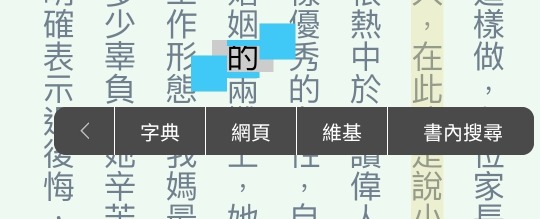
Reading Stats
Now, I'm a big dork and love to track my reading stats. To my great satisfaction, 讀墨 keeps track of some stats. The main one is time spent reading. You can set a daily goal (the minimum is 20 minutes), and if you reach it you get a nice checkmark on the calendar. The calendar doesn't update until the very end of each day, so if you've reached your goal for the day it won't show on the calendar until the next day.
Also, keep in mind time differences between where you live and Taiwan. I'm ~12 hours behind Taiwan, so the app doesn't start a new day until around noon for me.
Below the calendar, there's a chart that shows your total reading times for a week, month, or year. I normally can't be bothered to time my reading (especially not when I'm reading physical books) so this is cool to see. I think when it comes to reading in Chinese, being timed is more interesting because I'm able to more clearly gauge progress.


And below all that, there's a breakdown of the genres you read. I don't pay much attention to genre when choosing books, so I don't find this one quite as interesting.

(tfw you're reading a non-fiction book about a tutor so your main genre becomes 教育)
Overall Thoughts
So yeah, I've enjoyed myself so far. Aside from the reading interface, I find the app pretty easy to navigate. I spent a bit of time just clicking around and was able to figure out what's what pretty quick.
Like I said, this isn't a comprehensive review, but I'd recommend giving the app a try if you're willing/able to put down money for ebooks and are able to read traditional. It feels worth the money for me, since the interface is pretty customizable and easy to use.
If you're wondering where to find simplified ebooks, idk. This is my first real foray into Chinese ebooks, so I don't really know where to find them for simplified or traditional. I have heard that it is a little easier to pirate Chinese ebooks since their copyright laws are a little different than ours in the US?
#langblr#mandarin chinese#mandarin langblr#chinese langblr#learn mandarin chinese#learn mandarin#learn chinese#mine#books
57 notes
·
View notes
Text
🌿🌕✨
外国的月亮比较圆 - “the moon is rounder in other countries”
A funny phrase I learned today, the equivalent of “the grass is always greener on the other side”!
Do you feel that way sometimes too? 🌝
#proverb#vocab#mandarin#chinese language#mandarin chinese#chinese#mandarin vocab#language learning#chinese vocab#mandarin langblr#mandarinblr#idiom#chinese idiom
389 notes
·
View notes
Text
Monday 15th | 21/100 days of productivity₊ 。˚⊹
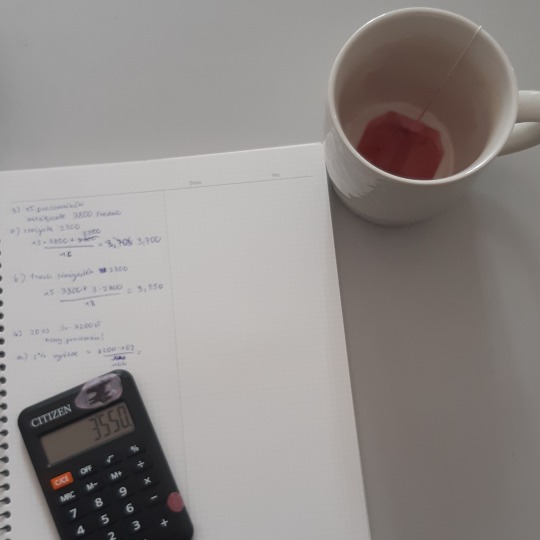

Revise French flashcards [5m]
Revise Japanese flashcards [5m]
Study for history test (4/3) [1h]
Listen to Japanese TV in the bg [30m]
Print mockup for paintings > got approved yay!
Finish making portfolio [10m]
Revise before English quiz, make flashcards [15m]
Read The Body Keeps The Score [30m]
Word of the day: to bloom; blossom -> flower bloomed
fr: fleurir [-ir verb] -> la fleur a fleuri
jp: 咲く [さく] -> 花が咲いた [はながさいた]
cn: 开花 [kāihuā] -> 花朵开花 [huāduǒ kāihuā]
nl: bloeien -> bloem bloeide
🎧₊ ˚⊹ raindrop city - lamp
#figured I'd do the word of the day if I have nothing to share lol#study blog#studyblr#study motivation#chaotic academia#100 days of productivity#100 days challenge#study#study tumblr#academic validation#academic weapon#langblr#french lang#french langblr#french language#japanese langblr#japanese language#languages#linguistics#mandarin#chinese#mandarin chinese#japanese#dutch#dutch language
33 notes
·
View notes
Text
Speak DECENT CHINESE in 4 months - 8 easy tips
______
1. Have someone to guide you to get good pronunciation habits. It is almost impossible to re-learn bad habits later so make sure you get your pronunciation right from the beginning. I mean the pronunciation of the sounds, not the tones. Tones take more time to get used to and you can't rush it - but try the best you can. Some tutors don't bother too much about the pronunciation so make sure you find someone who is strict about that, you will be grateful later. Also get confident in pinyin, you will need it.
2. Understand the composition of the sentences. The word order is super easy and it stays the same all the time (the question and informative sentences have the same word order). I have a formula for the word order but I won't reveal it here, it is one of the secrets I keep for my students and people who use my materials.
3. Understand that there are no tenses in the sense we think about them in English and other languages. Learn to express future, potential future, finished action, change of state, experience in the past and circumstances of the event. See the difference between action verbs and verbs of state.
4. Learn to use modal verbs and conjuctions.
5. Build usable vocabulary based on the fact that everything in Chinese is interconnected.
6. Understand 就, 才,的 and 得
7. Don't learn grammar rules and words separately. Learn functional practical sentences that will serve you as examples of the grammar structures (then you just need to change the words in these sentences).
8. Develop your listening skills - that is very important. For that there are Youtube channels and podcasts on Spotify (and in my materials the audio part also plays an important role). You can listen to Chinese radio stations just to get the feeling of the language.
______
After 3-4 months you should feel pretty confident in normal conversations if you study regularly under competent guidance.
______
R-evolutionary learning materials and resources: https://linktr.ee/chineseffect
MAGIC PLAYBOOK for beginners
#learn chinese#learn mandarin#chinese langblr#mandarin langblr#edublr#mandarin#chinese#mandarin edublr#langblr#chinese vocabulary#mandarin chinese#chinese edublr#learning mandarin#learning chinese#study chinese#mandarin vocabulary#study mandarin#汉语#chinese studyblr#beginners chinese#chinese for beginners#learning tips#chinese tips#mandarin tips
243 notes
·
View notes
Text
All the shishi words I know
Last year I learned the word 时事, and it struck me how many shishi words there are. For fun, I listed out all the ones I'm familiar with. You can see more at MDBG (but a Chinese-Chinese dictionary would probably have many more).
世世 shìshì - from age to age
世事 shìshì - affairs of life / things of the world
事事 shìshì - everything
事实 | 事實 shìshí - fact
失事 shīshì - (of a plane, ship etc) to have an accident (plane crash, shipwreck, vehicle collision etc) / to mess things up
实事 | 實事 shíshì - fact / actual thing / practical matter
实施 | 實施 shíshī - to implement / to carry out
实时 | 實時 shíshí - (in) real time / instantaneous
时事 | 時事 shíshì - current trends / the present situation / how things are going
时时 | 時時 shíshí - often / constantly
试试 | 試試 shìshi - to have a try
逝世 shìshì - to pass away / to die
I ran some stats based on my Anki deck, and there also a lot of qishi words: 其实、气势、骑士、启示、歧视、启事. But not as many as shishi. Maybe we need a poem of shishis to go alongside the 施氏食狮史 poem?
#nerdy language stuff#chinese#mandarin#mandarin chinese#chinese language#studyblr#langblr#learning languages#language learning#chinese langblr#mandarin langblr#languageblr
260 notes
·
View notes
Text
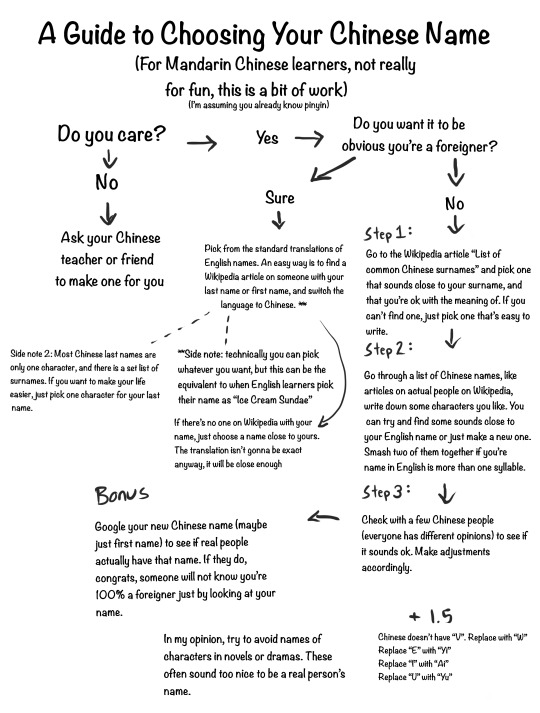
Been learning Mandarin Chinese for ten plus years. Feel free to add more tips.
#chinese langblr#mandarin chinese#mandarin#Chinese names#studyblr#langblr#mandarin learning#mandarin language#mandarin langblr#chinese#translating
324 notes
·
View notes
Text
quarterfinals!! - 4 of 4

brought to you by: kirby
kisumisu (finnish) vs 小猫 (mandarin chinese)
info and propawganda under the cut!
kisumisu - no IPA provided
Long and cute !
both parts already mean ""cat"" on their own, the repetition is added for maximum kittycat cuteness. also insanely fun to say
小猫 (xiǎo māo) /ɕjau̯˩ mɑu̯˥/
it rhymes and means little meow. what is a kitten if not a little meow
Perfect way to describe a cat. It rhymes and it sounds really cute. Also cmon look at a cat. That IS a xiao mao mao
you cannot tell me they are not the perfect word for a kitty cat. they came up to us and introduced themselves, so we decided to call them by the name they call themselves, and in mandarin, we call them ""little māo"" because they are our little meow meows!! they are our babies!! also chinese is Ancient. our writing system goes back like 4000 years!! and we are still using it! i admit we probably weren't calling them 貓 for all these 4000 years but respect your elders! /lh
35 notes
·
View notes
Text
Learning Chinese from Spam Texts
I got a very amusing spam text in Chinese this morning, so naturally I have to turn it into a vocabulary lesson.
生活洋溢甜蜜温馨,周末愉快,今天有什么安排呢?
看你没有回信息,你是在忙还是没有收到我的信息呢?
新词 Vocab:
洋溢 / yáng yì / brimming with
甜蜜 / tián mì / sweet
温馨 / wēn xīn / soft, fragrant and warm
愉快 / yú kuài / happy, pleasant, cheery
安排 / ān pái / plan or arrangements; to plan or arrange
信息 / xìn xī / text message; information
收到 / shòu dào / to receive
翻译 Translation:
Life is brimming with sweetness and warmth, happy weekend, what plans do you have today?
I see you haven't replied to my message, are you busy or have you not received my message?
#chinese langblr#mandarin langblr#chinese learning#chinese#langblr#mandarin chinese#language learning#mandarin#learning languages#vocab#spam text#spam#垃圾信息#cackling at this message tbh#really threw me off
128 notes
·
View notes